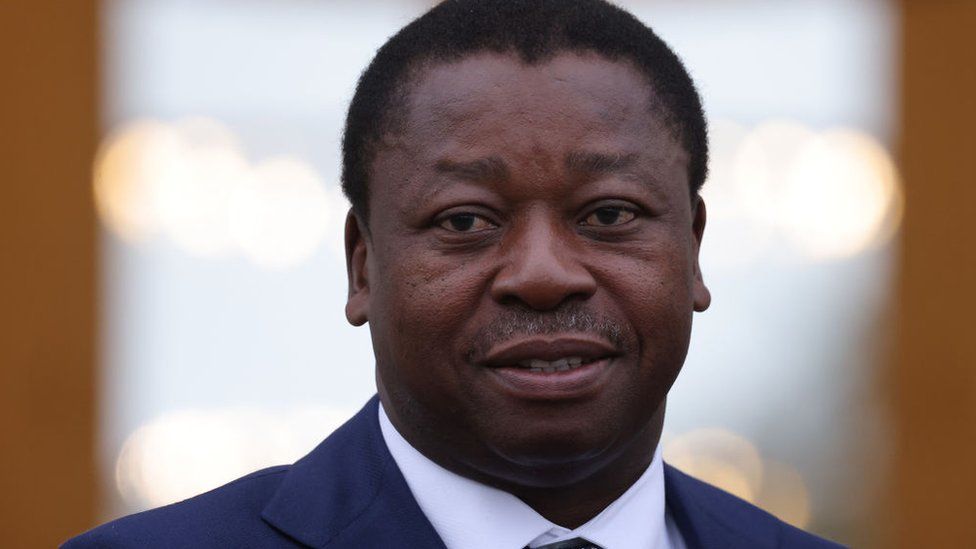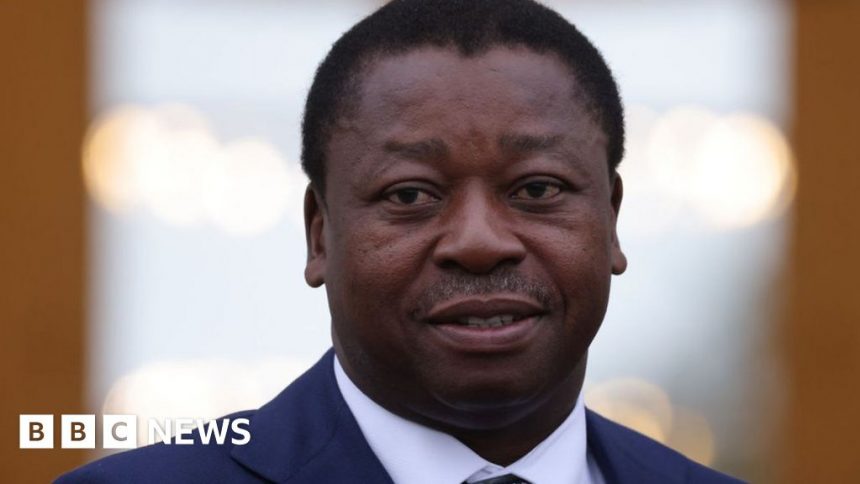Togo constitution: Opposition says changes are presidential ‘power grab’
-
Published

The opposition in Togo has denounced a proposed new constitution as a power grab, intended to extend the reign of President Faure Gnassingbé.
The reforms would see the West African country move from a presidential to a parliamentary system. But the opposition says they are a ruse to keep Mr Gnassingbé – already in his fourth term – in power.
The president’s supporters say the changes would reduce the powers of the head of state by transforming the presidency into a ceremonial role. Human Rights Minister Yawa Djigbodi Tségan says they will “improve democracy in the country”.
But the opposition says the reforms would allow him to remain president until 2031 and then be appointed to the new position of “president of the council of ministers” – in effect prime minister – continuing his family’s 57-year rule.
President Gnassingbé came to power in 2005 after the death of his father, who had been president since 1967.
The constitutional changes were approved by lawmakers last month. But in the face of mounting public anger, Mr Gnassingbé paused the reforms and said they would be subject to further consultations.
‘Don’t Touch My Constitution’
Pro-government lawmakers have conducted visits around the country to “listen to and inform civilians on the constitutional reform”.
Customary rulers and selected groups were among the main target of the discussions – but no changes were made as a result.
There is widespread fear among people about expressing views in public in case they are targeted by the authorities, especially in light of police cracking down on anti-government protests.
Last month, an opposition press conference under the banner of “Don’t Touch My Constitution” was broken up by authorities.
Gerry Taama, the leader of the second-largest opposition party, the New Togolese Commitment, said he feels “disappointed with what is happening”.
‘Not going to accept this’
One-time presidential candidate Brigitte Kafui Johnson, who leads the opposition CDPA party, described the constitutional amendments as a “power grab”.
In contrast, those supporting the constitutional changes argue they will strengthen democracy and improve political stability. “The aspirations of our people are not served by the current constitution,” said Pacôme Adjourouvi, an adviser to the president.
Activists and opposition leaders had called for protests – but these were banned.
Amid the turmoil, Mr Gnassingbé postponed this month’s parliamentary elections, a move that only served to stir up the unrest.
Then the government announced that the elections would go ahead after all, rescheduling them for 29 April, just over a week later than the original date.
The opposition insist they will not back down until the changes are withdrawn.
“We’re not going to accept this, and we will fight against this constitution,” said Brigitte Kafui Johnson.
Related Topics
-
-
Published28 April 2023
-






